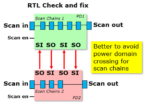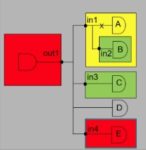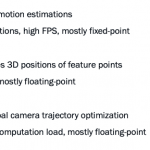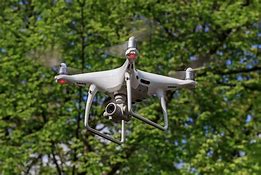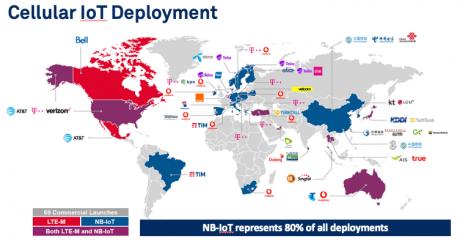Clock domain crossing (CDC) analysis is unavoidable in any modern SoC design and is challenging enough to verify in its own right. CDC plus low power management adds more excitement to your verification task. I wrote on this topic for another solution provider last year. This time I want to intro an interesting twist on the problem,… Read More
Tag: low power
Flex Logix Expands Its eFPGA Footprint with a Low Power Comms Design Win from OpenFive
Embedded FPGA use is on the rise. The programmability offered by this kind of IP finds many applications in complex SoCs. There was a recent announcement that OpenFive had licensed Flex Logix’s eFPGA to develop a low power communications SoC. The part required a large eFPGA. The news was reported on SemiWiki here. This announcement… Read More
Power in Test at RTL Defacto Shows the Way
In the early days of Atrenta I met with Ralph Marlett, a distinguished test expert with many years of experience at Zuken and Recal Redac. He talked me into believing we could do meaningful static analysis for DFT-friendliness at RTL. His work with us really opened my eyes to the challenges that test groups face in integrating their… Read More
The Moving Target Known as UPF
As if engineers did not have enough difficulty just getting everything right so that their designs are implemented functionally correct, the demands of lowering power consumption require changes that can affect functionality and verification. Techniques such as power gating, clock gating, mixed supply voltage, voltage … Read More
Synopsys Announces IP Supporting 5G’s Game Changing Low Power IoT Spec
If you are like me, you will get a 5G phone because of the high bandwidth it offers. However, there is a lot more to 5G than just fast data. In fact, one of the appealing features of 5G is low bandwidth communication. This is useful for edge devices that perform infrequent and low volume data transfers and depend on long battery life. Prior… Read More
WEBINAR: The Brave New World of Customized Memory
The need to design low power devices is not new. However, the criticality of lowering the power consumption of chip designs has never been as important as it is now. In 1989, I purchased one of the first consumer cell phones produced by Panasonic. The battery was the size of a brick, but only about a third of the thickness. If the battery… Read More
Synopsys Low Power Workshop Offers Breadth and Depth
Synopsys seems to particularly excel at these events, whether in half-day tutorials at conferences or, as in this case, in a full-day on-site workshop. You might think there’s not much that can be added in this domain, other than to bring low-power newbies up to speed, but you’d be wrong. This event set the stage with surveys on needs… Read More
Visual SLAM at the Edge
SLAM – simultaneous localization and mapping – is critical for mobile robotics and VR/AR headsets among other applications, all of which typically operate indoors where GPS or inertial measurement units are either ineffective or insufficiently accurate. SLAM is a chicken and egg problem in which the system needs to map its environment… Read More
Compute at the Edge
At first glance, this seems like a ho-hum topic- just use whatever Arm or RISC-V solution you need – but think again. We’re now expecting to push an awful lot of functionality into these edge devices. Our imaginations don’t care about power, performance and cost; everything should be possible so let’s keep adding cool features.… Read More
Narrow-Band IoT Adoption Grows as IP Options Narrow
Cellular as a method to communicate with the IoT is on a tear for obvious reasons. It’s long-range with no concerns about the lesser reach of Bluetooth or Wi-Fi, it needs no added infrastructure since it already works with 2G/3G/4G (and ultimately 5G I presume) and it’s designed for ultra-low power, supporting those devices expecting… Read More




